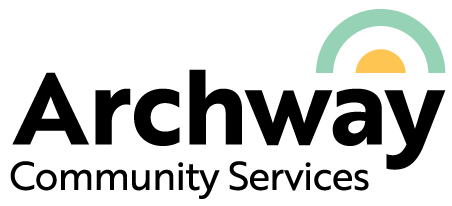Food Justice
We aim to serve those experiencing food insecurity or food injusticeThe Food Justice Program
Collaborating with various partners, the Food Justice program explores food justice and food sovereignty in action.
We are working to strengthen the local food system, to identify gaps in services, and to provide access to nutritious food for all community members.
Collectively, we are developing the Valley Food Connection (VFC), a network of food system players that share a unified goal of building a community centered around food.
The VFC will operate out of a central location that will host community-led food programming and will bring people together in an inviting, inclusive and inspiring environment.
We hope to empower the community through skill building, education, and knowledge-sharing programs. At the Valley Food Connection, you come to Eat, Grow, Share and Connect.
Who We Help
- All are welcome. We aim to serve those experiencing food insecurity or food injustice
To Access the Food Justice Program
- Please contact us to discuss how we can help you.
- FoodJustice@archway.ca or 236-380-4301
Affordable & Free Food Options in Abbotsford
We’ve compiled a map that allows community members to see places in Abbotsford that offer affordable or free food and meal options. If there is a low-cost grocery store or service that is missing, please let us know.
The Bulk Buy Collective
The first service of the Food Justice program is the Bulk Buy Collective. which provides produce at reduced prices through bulk purchasing power.
The Bulk Buy Collective began in June 2021, and as of June 2023 there are more than 1000 individuals, including 450 children in 290+ households, who benefit from this shared purchasing power.
Contact Info
Office Hours
8:30am – 4:30pm
Monday – Friday
Address
33914 Essendene Ave
Abbotsford, BC V2S 2H8
Structural Inequalities & Food Insecurity
Food insecurity is a term that is often misunderstood. For many, it is believed to be an issue of the individual and not that of the system. Food insecurity is so much more than not having enough to eat. It is a complex social issue with multiple causes, opinions, and approaches.
It is important to shed light on the issue within our society to better understand how the insecurity is caused and how it can be alleviated. One in eight households in Canada was food insecure in 2018, amounting to roughly 4.4 million people, including more than 1.2 million children living in food-insecure households.
Food insecurity is not only an issue for those without housing or employment, in fact, more than 65 per cent of those experiencing food insecurity are working. With the gap between wages and the costs of living growing immensely, many individuals are left unable to afford food.
Household food insecurity in Canada is tightly linked to income. As a household’s income declines, the risk of food insecurity increases. However, it is not a perfect correlation. Being on social assistance, old age pension, and disability poses an extremely high risk of food insecurity. Over half of households reliant on social assistance were food insecure in 2018, and in some areas of Canada this rate rises above 80 per cent. The reason for these shocking statistics is that the amounts received from these government programs simply do not cover all living expenses.
The impacts of food insecurity extend beyond diet and nutrition, and it does not affect people equally. Food insecurity has systemic inequalities that predominantly impact marginalized communities and restrict access to nutritious, culturally appropriate foods. This results from environmental and social injustices, including poor working conditions for food-service workers and farmworkers.
Issues within our food system originate from colonialism, capitalism, and institutional racism that continues to perpetuate the racial divide. Social stigma regarding access to food services also plays a major role in food insecurity as many feel as though not being able to provide for yourself and your family is their own fault and seeking help is shameful.
It is important to recognize these deep interconnections and build linkages with intersecting causes and work, such as anti-racism and poverty reduction, and reducing societal stigma towards food access. While civil society groups continue to do their best to help those struggling with food insecurity, reducing inequalities requires changing the social, economic, and environmental conditions that affect the costs of food production and distribution, as well as people’s income and ability to afford food.
Beyond Hunger:
The Hidden Impacts of Food Insecurity
Learn more about the impact of food insecurity, see stories and read the full report from Community Food Centres Canada.
Stories & News from Food Security Programs
The Archway Urban Farm: Growing Community Partnerships
Learn how the Archway Urban Farm has grown to provide more than just fresh food to the community.
From Struggle to Sustenance: Gema’s Journey with the Archway Food Bank
How the Archway Food Bank was able to support Gema, a single mother seeking a fresh start in Abbotsford.
Starfish Packs: Providing Nutritional Support Beyond the Classroom
Learn how the Starfish Pack Program is able to provide nutritional support to over 700 students across Abbotsford.






